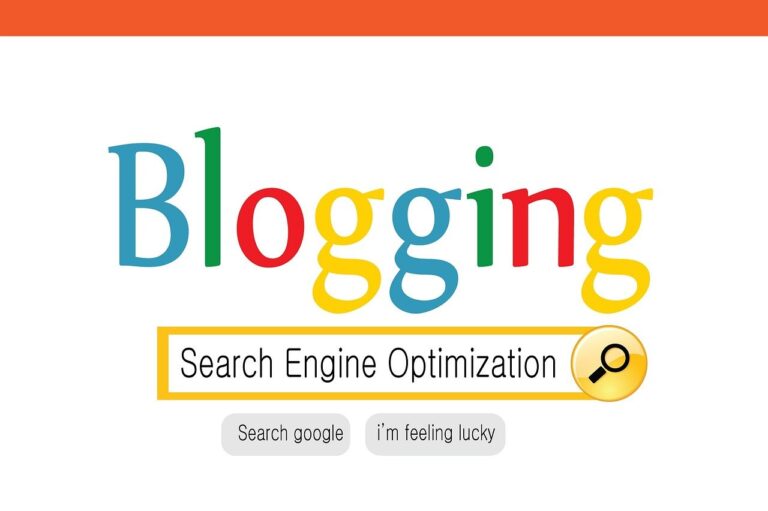Understanding SEO For Holistic Practitioners
SEO plays a crucial role in the holistic health industry. It helps practitioners reach their target audience effectively. However, it comes with unique challenges that require specific strategies to overcome.
The Importance Of SEO In The Holistic Health Niche
SEO is vital for holistic practitioners to increase their visibility and attract more clients. By optimizing your website, you can rank higher in search results for relevant keywords.
This increased visibility leads to more organic traffic and potential clients finding your services. SEO also helps establish your credibility and authority in the holistic health field.
To start, focus on identifying the right keywords that your target audience uses when searching for holistic health services. Use tools like Google Keyword Planner or SEMrush for this research.
Create high-quality, informative content that addresses your audience’s needs and incorporates these keywords naturally. This approach can significantly improve your search engine rankings and online presence.
Common SEO Challenges Faced By Holistic Practitioners
Holistic practitioners often face unique SEO challenges. One major hurdle is the competition in the health and wellness sector, which can make it difficult to stand out.
Another challenge is creating content that balances scientific accuracy with accessibility for a general audience. You need to explain complex holistic concepts in simple terms while maintaining credibility.
Technical SEO aspects can also be daunting for practitioners who may not have extensive web development knowledge. This includes optimizing website speed, ensuring mobile-friendliness, and implementing proper site structure.
To overcome these challenges, consider adopting a holistic SEO approach. This strategy focuses on improving all aspects of your online presence, including content quality, user experience, and technical optimization.
Keyword Research For Holistic Health

Effective keyword research is crucial for holistic practitioners to improve their online visibility and attract the right clients. By identifying relevant search terms and phrases, you can optimize your website content to match what potential clients are looking for.
Identifying High-Value Keywords
Start by brainstorming terms related to your holistic practice. Think about the services you offer and the problems you solve for clients. Use these as a foundation for your keyword research.
Focus on keywords that have high search volume and low competition. This balance ensures you target terms people are searching for while having a realistic chance of ranking well.
Consider local keywords if you serve a specific area. Include your city or region in search terms, such as “holistic practitioner in [your city]” or “[your specialty] near me”.
Analyze your competitors’ websites to see what keywords they’re targeting. This can provide valuable insights and help you identify gaps in your own strategy.
Long-Tail Keywords And Their Importance
Long-tail keywords are longer, more specific phrases that typically have lower search volume but higher conversion rates. They are crucial for holistic health practices to attract targeted traffic.
Examples of long-tail keywords for holistic health:
- “natural remedies for chronic back pain”
- “holistic approach to stress management”
- “acupuncture for fertility issues”
These specific phrases help you attract clients who are looking for exactly what you offer. They often indicate a higher level of intent to seek treatment or services.
Long-tail keywords are generally less competitive, making it easier for your website to rank well for these terms. This can lead to more qualified traffic and potential clients.
Tools For Effective Keyword Research
Several tools can streamline your keyword research process:
- Google Keyword Planner: Free tool providing search volume and competition data.
- SEMrush: Offers comprehensive keyword analysis and competitor insights.
- Ahrefs: Provides detailed keyword metrics and content gap analysis.
- Answer the Public: Generates questions people are asking about your topic.
- Google Search Console: Shows which keywords are already driving traffic to your site.
Use these tools to discover new keyword opportunities, analyze search trends, and refine your content strategy. Remember to regularly update your keyword research to stay current with changing search patterns in the holistic health field.
Content Optimization Techniques

Content optimization is crucial for holistic practitioners to improve their online visibility and attract potential clients. By focusing on quality, relevance, and user experience, you can create content that resonates with your target audience and ranks well in search engines.
Creating High-Quality, Relevant Content
To create high-quality content, start by understanding your audience’s needs and interests. Conduct keyword research to identify topics that matter to your potential clients. Use tools like Google Keyword Planner or Ahrefs to find relevant keywords and phrases.
Develop content that addresses common questions and concerns in your field. Incorporate your expertise and unique insights to provide value to readers. Use a mix of content types, such as blog posts, videos, and infographics, to cater to different learning preferences.
Ensure your content is well-structured and easy to read. Use headings, subheadings, and bullet points to break up text. Include relevant images and diagrams to illustrate complex concepts.
On-Page SEO Best Practices
Optimize your content for search engines by implementing on-page SEO techniques. Start with your title tags and meta descriptions, incorporating target keywords naturally.
Use header tags (H1, H2, H3) to structure your content logically. Include your primary keyword in the H1 tag and related keywords in subsequent headers. Optimize your images by using descriptive file names and alt text.
Internal linking is crucial for improving site structure and user experience. Link to relevant pages within your website to help visitors find related information easily.
The Role Of User Experience In Content Optimization
User experience plays a significant role in content optimization. Ensure your website loads quickly and is mobile-friendly. Use a clean, intuitive design that makes it easy for visitors to navigate and find information.
Pay attention to readability. Use short paragraphs, simple language, and a conversational tone to make your content accessible. Consider using tools like Hemingway Editor to improve clarity and readability.
Engage your audience by encouraging comments and discussions. Respond promptly to questions and feedback to build trust and credibility. Incorporate multimedia elements like videos or podcasts to cater to different learning styles and keep visitors on your site longer.
Local SEO For Holistic Practitioners

Local SEO is crucial for holistic practitioners to attract nearby clients and boost visibility in their community. By optimizing your online presence for local searches, you can increase foot traffic and grow your practice effectively.
Optimizing Your Google My Business Listing
Claim and optimize your Google My Business (GMB) listing to improve local search visibility. Ensure your business name, address, and phone number are accurate and consistent across all platforms.
Add high-quality photos of your practice and team to make your listing more engaging. Choose relevant categories that best describe your holistic services.
Regularly update your GMB profile with posts, offers, and events to keep it fresh and informative. Encourage satisfied clients to leave reviews, and respond promptly to all feedback, both positive and negative.
Use GMB’s Q&A feature to address common questions about your practice, treatments, and specialties. This helps potential clients find important information quickly and easily.
Importance Of Local Citations And Reviews
Build a strong foundation of local citations by listing your practice on reputable business directories and review sites. Ensure your NAP (Name, Address, Phone number) information is consistent across all platforms.
Encourage satisfied clients to leave reviews on Google, Yelp, and other relevant platforms. Positive reviews build trust and improve your local search rankings.
Respond to all reviews, both positive and negative, in a professional and timely manner. This demonstrates your commitment to client satisfaction and helps manage your online reputation.
Consider using a review management tool to streamline the process of monitoring and responding to reviews across multiple platforms.
Localized Content Strategies
Create location-specific pages on your website for each area you serve. Include relevant local keywords, landmarks, and information about your services in that particular location.
Develop blog posts and articles that address local health concerns or highlight community events related to holistic health. This helps establish your practice as a local authority.
Optimize your website’s meta titles and descriptions with location-based keywords to improve visibility in local search results.
Consider creating location-specific landing pages for different services you offer, tailoring the content to the needs of each local community you serve.
Participate in local events and share your involvement on your website and social media platforms to strengthen your local presence and attract nearby clients.
Building Authority In The Holistic Health Niche
Establishing yourself as an authority in the holistic health field requires strategic efforts across multiple channels. Focus on creating valuable content, building relationships, and leveraging digital platforms to showcase your expertise.
Guest Blogging And Backlink Strategies
Guest blogging is a powerful way to expand your reach and build authority. Identify reputable holistic health websites and offer to contribute high-quality articles. This exposes you to new audiences and earns valuable backlinks.
Create a list of target websites relevant to your niche. Reach out with personalized pitches highlighting your expertise. When writing guest posts, focus on providing actionable advice and unique insights.
Implement a diverse backlink strategy. Seek opportunities for interviews, podcast appearances, and collaborations with complementary practitioners. These efforts not only boost your SEO but also position you as a trusted expert in the holistic health community.
Leveraging Social Media For Authority Building
Social media platforms offer excellent opportunities to showcase your knowledge and connect with your audience. Choose platforms where your target clients are most active.
Share valuable content consistently, including tips, success stories, and industry news. Use visually appealing graphics and videos to increase engagement. Respond promptly to comments and messages to build trust and rapport.
Create a strong brand presence across your chosen platforms. Use consistent branding elements and messaging to reinforce your expertise. Participate in relevant online discussions and groups to demonstrate your knowledge and help others.
Consider hosting live Q&A sessions or webinars to directly interact with your audience and address their concerns.
Networking With Other Holistic Health Professionals
Building relationships with peers in the holistic health field can significantly boost your authority and credibility. Attend industry conferences, workshops, and local meetups to connect with like-minded professionals.
Join professional associations related to your specific holistic health niche. These organizations often provide networking opportunities, continuing education, and resources to support your growth.
Collaborate on projects or co-create content with other practitioners. This can include joint webinars, podcasts, or research initiatives. Cross-promotion expands your reach and reinforces your expertise in the eyes of potential clients.
Consider mentoring new practitioners or offering to speak at holistic health events. These activities position you as a leader in your field and contribute to your overall authority.
Technical SEO Considerations
Technical SEO forms the foundation of your website’s visibility and performance in search results. By optimizing these behind-the-scenes elements, you can significantly improve your site’s ranking potential and user experience.
Website Speed And Performance
Fast-loading pages are crucial for both user satisfaction and search engine rankings. You should aim for page load times under 3 seconds.
To achieve this, compress your images and use appropriate file formats. Then, consider implementing lazy loading for images and videos.
Minify your CSS, JavaScript, and HTML files to reduce file sizes. Also, leverage browser caching to store static files on visitors’ devices.
Use a content delivery network (CDN) to serve your website from servers closer to users’ geographical locations. This can drastically reduce load times for international visitors.
Monitor your site’s speed regularly using tools like Google PageSpeed Insights. These tools provide actionable recommendations for improvement.
Mobile Optimization Best Practices
With mobile traffic dominating internet usage, optimizing for mobile devices is non-negotiable. Implement a responsive design that adapts to various screen sizes.
Ensure your content is easily readable on small screens without zooming. Use legible font sizes and maintain sufficient contrast between text and background.
Optimize your site’s touch elements. Make buttons and links large enough to tap easily with a finger. Also, space interactive elements appropriately to prevent accidental clicks.
Avoid using pop-ups on mobile devices as they can be intrusive and difficult to close. If necessary, design mobile-specific pop-ups that are easy to dismiss.
Test your site’s mobile-friendliness using Google’s Mobile-Friendly Test. Address any issues highlighted by the tool promptly.
Ensuring Proper Site Structure And Navigation
A well-organized site structure helps search engines understand and index your content effectively. It also improves user experience by making information easy to find.
Create a logical hierarchy for your content. Use a clear URL structure that reflects this hierarchy. For example: yoursite.com/services/holistic-therapy.
Implement breadcrumb navigation to help users understand their location within your site. This also provides additional context for search engines.
Optimize your internal linking strategy. Link related pages to each other using descriptive anchor text. This helps distribute link equity throughout your site.
Create an XML sitemap and submit it to search engines through their webmaster tools. This ensures all your important pages are discovered and indexed.
Use schema markup to provide search engines with additional context about your content. This can lead to rich snippets in search results, improving click-through rates.
Measuring And Analyzing SEO Success

Tracking key metrics and using analytics tools effectively allows you to gauge the performance of your SEO efforts. By analyzing data insights, you can make informed adjustments to your strategies for optimal results.
Key Metrics To Track
To measure your SEO success, focus on these essential metrics:
- Organic traffic: Monitor the number of visitors coming to your website through unpaid search results.
- Keyword rankings: Track your position in search engine results pages (SERPs) for target keywords.
- Conversion rate: Measure the percentage of visitors who take desired actions on your site.
- Bounce rate: Analyze the proportion of single-page visits to assess user engagement.
- Page load speed: Keep an eye on how quickly your pages load, as this affects both user experience and rankings.
Regularly reviewing these metrics will help you understand the effectiveness of your SEO strategies and identify areas for improvement.
Using Analytics Tools Effectively
Leverage powerful analytics tools to gather and interpret data:
Google Analytics: Set up goals to track conversions and analyze user behavior.
Google Search Console: Monitor your website’s performance in search results and identify technical issues.
SEMrush or Ahrefs: Use these platforms for comprehensive keyword research and competitor analysis.
Customize dashboards in these tools to focus on the metrics most relevant to your holistic practice. Then, set up automated reports to save time and ensure consistent monitoring.
Adjusting Strategies Based On Data Insights
Use the data you collect to refine your SEO approach:
- Identify underperforming content and update or optimize it.
- Adjust your keyword strategy based on ranking data and search trends.
- Improve user experience by addressing issues highlighted in bounce rate and page speed metrics.
Analyze your SEO performance data regularly to spot patterns and opportunities. Be prepared to pivot your strategy if certain tactics aren’t yielding desired results. Remember, SEO is an ongoing process that requires continuous refinement based on data-driven insights.
Conclusion

Implementing holistic SEO strategies can significantly boost your online presence as a holistic practitioner. By focusing on a comprehensive approach, you’ll create a user-friendly website that meets both search engine and visitor needs.
Remember to prioritize high-quality content that addresses your audience’s concerns. This forms the foundation of your SEO efforts and helps establish your expertise in the field.
Technical SEO elements are crucial for ensuring your site is easily crawlable and indexable. Pay attention to site speed, mobile responsiveness, and proper structuring of your content.
Don’t overlook the power of building quality backlinks and engaging on social media platforms. These off-page factors contribute to your overall SEO success and help expand your reach.
Regularly monitor your website’s performance using analytics tools. This data will guide your ongoing optimization efforts and help you adapt to changes in search algorithms or user behavior.
By adopting a holistic SEO mindset, you’ll create a sustainable online presence that attracts and retains clients while improving your visibility in search results. Stay committed to this approach, and you’ll see long-term benefits for your holistic practice.
Frequently Asked Questions

SEO strategies for holistic practitioners involve tailored approaches to attract clients and showcase expertise. These techniques encompass keyword optimization, content creation, and leveraging digital platforms to enhance online visibility.
What are the top strategies for implementing SEO in holistic health practices?
Conducting thorough keyword research is crucial for holistic health practices. Focus on terms potential clients use when searching for your services.
Create high-quality, informative content that addresses common questions and concerns in your field. This establishes your authority and improves search rankings.
Optimize your website’s technical aspects, including page speed and mobile responsiveness. Search engines favor sites that provide a seamless user experience.
How can holistic therapists leverage SEO to attract more clients?
Develop a strong local SEO strategy by claiming and optimizing your Google My Business listing. This improves visibility in local search results.
Encourage satisfied clients to leave reviews on your Google profile and other relevant platforms. Positive reviews boost credibility and search rankings.
Create targeted landing pages for specific services or treatments you offer. This helps capture more specific search queries.
What role does keyword selection play in optimizing websites for therapists?
Keyword selection is critical in optimizing therapist websites. Choose keywords that reflect your specialties and the services you provide.
Incorporate long-tail keywords that match specific client queries. These often have less competition and higher conversion rates.
Use keywords naturally throughout your website content, including in titles, headers, and meta descriptions.
How can holistic practitioners effectively communicate their specialties through SEO?
Create detailed service pages that thoroughly explain each specialty or treatment you offer. Use relevant keywords within these descriptions.
Develop a blog or resource section where you can share in-depth information about your specialties. This showcases your expertise to both clients and search engines.
Utilize schema markup to provide search engines with structured data about your services, making it easier for them to understand and display your specialties.
In what ways is SEO beneficial for therapists looking to grow their online presence?
SEO increases your visibility in search results, making it easier for potential clients to find you when seeking holistic health services.
It helps establish your credibility and authority in your field by showcasing your expertise through high-quality content.
SEO can lead to increased website traffic, which often translates to more inquiries and client bookings.
What key elements constitute a comprehensive SEO plan for therapy professionals?
A comprehensive SEO plan for therapists should include on-page optimization. This involves focusing on relevant keywords and quality content.
You should implement technical SEO best practices to ensure that search engines can easily crawl and index your website.
Develop a content strategy that addresses common client questions and concerns. This will help position you as an expert in your field.
Lastly, build high-quality backlinks from reputable health and wellness websites to boost your domain authority.






